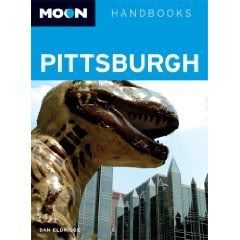 Sports is in the air! Write On! speaks with Sam Hendricks, the award-winning author of the Fantasy Football Guidebook, Fantasy Football Tips, Fantasy Football Basics, and Fantasy Football Almanac 2010.
Sports is in the air! Write On! speaks with Sam Hendricks, the award-winning author of the Fantasy Football Guidebook, Fantasy Football Tips, Fantasy Football Basics, and Fantasy Football Almanac 2010.
An avid player for the last 20 years, Hendricks has won numerous league championships and participated in the World Championship of Fantasy Football (WCOFF), National Fantasy Football Championship (NFFC), and Fantasy Football Players Championship (FFPC). His rankings, projections and “expert” analysis appear in numerous fantasy football magazines; plus, Hendricks is the “Ask the Expert” column expert at www.fantasyindex.com and a member of the Fantasy Sports Writers Association (FSWA).
Hendricks’ book—Fantasy Baseball for Beginners—is being released this fall. He has a financial planning book due out in 2011.
How did you become an expert in Fantasy Football?
I started playing fantasy football in the early 1990’s (flying combat missions in Operation Desert Storm and playing fantasy football in my spare time). Over the next 20 years, my competitive streak increased. After dominating local leagues for many years, I moved up to the World Championship of Fantasy Football (WCOFF) in 2006. In 2008 I participated in the inaugural Fantasy Football Players Championship (FFPC) and finished 7th overall and followed in 2009 with a 16th finish out of 228 top competitors.
Why did you write this series?
In 2004, I tried to find a book on fantasy football. There were not many available and those that were out were either too basic or too full of bluster. So, in 2006, I decided to write the most comprehensive guide to fantasy football, the ultimate reference guide. I wanted my first book to be a book everyone wants and needs about the hobby. While Fantasy Football Guidebook (400 pages) does have everything, many readers wanted to know my specific tips and techniques, so a year later, I wrote Fantasy Football Tips. At that point I had two books on fantasy football, but none for the beginner. The next step was Fantasy Football Basics to complete the three-book series and cover every level of fantasy footballer from the beginner to the experienced player.
What was your process for writing these Fantasy Football books? How did you go about getting them published?
With the first book, I found the writing process to be easy. I just tried to imagine the kind of resource book I wanted as a fantasy football fan. I wrote everything I knew. I wanted to tell the history of Fantasy Football, the different leagues, scoring systems, and the draft strategies. I hoped to cover everything that players talked about when they got together. It is THE BOOK on Fantasy Football. Several Fantasy Football magazines invited me to contribute rankings, projections, and commentary starting in 2006; Fantasy Football Almanac is the by-product of those contributions. And I have put an Almanac out every year since.
Virtual Book Worm (VBW) published Fantasy Football Guidebook and Fantasy Football Almanac. I found VBW to be an excellent resource for a first-time author, as they provided editing, layout, and distribution support. In 2009, I moved my titles to Extra Point Press and took on more of the creative decisions. I have not regretted either decision.
What was your greatest challenge writing Fantasy Football Basics: The Ultimate “How-To” Guide for Beginners? 
I needed to develop two strategies for beginners. Since I am so experienced in fantasy football, I have never thought about a simple strategy and how to implement a successful, yet easy, strategy. This was a big challenge. It had to be something that worked but that anyone could do. Fantasy Football Basics was fun because I had to put myself in the shoes of a beginner. I honestly tried to imagine what my wife or co-workers, who do not play FF, would want in a starter’s manual.
Are there similarities between these guidebooks? What are they?
All of these non-fiction titles are very much alike. I start with the history and basic description of the subject; next, show the different choices and the advantages/disadvantages of each decision; and finish with a review of resources to help someone do the task. And each include easy-to-follow steps and checklists.
What should someone who wants to write about sports—fantasy and otherwise—need to know about that niche?
I think experience is the key. Thirty million people play fantasy sports, but few play in the high-stakes leagues. There are only about 500 people in the world who consistently “put their money where their mouth is” and play in one or more of the big-three high-stakes leagues, which require an entry fee of over $1,300 (FFPC, WCOFF, and NFFC). Once you establish yourself as a contender, then you can start to think about telling others how to do it. Many sports writers do not play in the big money leagues to prove their worth.
What major pitfalls should someone writing in a niche be aware of?
Know your target audience. Make sure they need and can afford your book. It does no good to write a great book on a subject that only 100 people care about or can buy. Fantasy football is played by millions each year. Some are just starting out and some are already very good. There are enough in each category to support a book. The same may not be said for every fantasy sport. In other words, you probably will not see a fantasy curling book from me.
Additional advice for writers?
1. Write every day. Even if it is only a little bit, put it down on paper. Something is always better than nothing.
2. Take a notebook or PDA with you everywhere. I get ideas at all times of the day.
3. Make time for writing (1 to 2 hours a day at a minimum) every day and do nothing else other than that.
4. Don’t stop to research or spell check. Just write. You can always clean it up on another day, when you have a bit of writing block.
What do  you know now that you wish you knew when you first started writing?
you know now that you wish you knew when you first started writing?
I wish I knew about the costs of publishing books when I first started. I was a little naive to how the “brick and mortar” establishments worked. It still amazes me to this day that bookstores ask for a 55% discount and expect to return books. In my opinion there are too many middle men with their fingers in the publishing pie. Print on demand (POD) and e-books are changing the face of publishing. E-books have few production costs and some argue there are few reasons to discount them more than paper books.
Tags: Author Q&A Fantasy Football Almanac 2010 Fantasy Football Basics Fantasy Football books Fantasy Football Guidebook Fantasy Football Players Championship Fantasy Football Tips Fantasy Sports Fantasy Sports Writers Association National Fantasy Football Championship Sam Hendricks Sports Writing Virtual Book Worm World Championship of Fantasy Football www.fantasyindex.com









